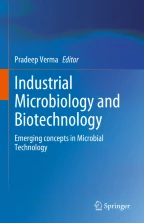Biomedical Application of Industrial Microbiology

Recombinant DNA (rDNA) technology advancements over the past few decades have completely changed the field of microbial biotechnology by altering microbial genomes to create cells for the mass manufacture of goods like nutraceuticals and biomedicines. The development of antibiotics and the large-scale manufacture of vaccinations have both been aided by biomedical industrial applications using microbial platforms. Nutraceuticals is a catch-all phrase for pharmaceuticals with bioactive ingredients. Probiotics are made up of bacterial species like Lactobacillus, Bifidobacterium, and others that not only combat harmful bacteria but also generate the body’s vital vitamins (B1, B2, B5, and B6). Novel microbial culture techniques have made it possible to produce in large quantities the bacteria, algae, and yeast that serve as a suitable source of protein in dietary supplements. The manufacture of vaccines today makes use of disease-causing microorganisms that have been attenuated. This chapter will highlight the positive effects of microbial engineering in healthcare and outline the main areas of pharmaceutical biotechnology development.
This is a preview of subscription content, log in via an institution to check access.
Access this chapter
Subscribe and save
Springer+ Basic
€32.70 /Month
- Get 10 units per month
- Download Article/Chapter or eBook
- 1 Unit = 1 Article or 1 Chapter
- Cancel anytime
Buy Now
Price includes VAT (France)
eBook EUR 181.89 Price includes VAT (France)
Softcover Book EUR 232.09 Price includes VAT (France)
Hardcover Book EUR 232.09 Price includes VAT (France)
Tax calculation will be finalised at checkout
Purchases are for personal use only
References
- Decker EL, Reski R (2008) Current achievements in the production of complex biopharmaceuticals with moss bioreactors. Bioprocess Biosyst Eng 31(1):3–9 ArticleCASPubMedGoogle Scholar
- Gouilleux F, Pallard C, DusanterFourt I, Wakao H, Haldosen LA, Norstedt G, Groner B (1995) Prolactin, growth hormone, erythropoietin and granulocyte macrophage colony stimulating factor induce MGF Stat5 DNA binding activity. EMBO J 14(9):2005–2013 ArticleCASPubMedPubMed CentralGoogle Scholar
- Kaur N, Chaudhary V (2021) Biotherapeutics and its applications in microbiology. Environ Conserv J 22(SE):63–78. https://doi.org/10.36953/ECJ.2021.SE.2207ArticleGoogle Scholar
- Khalesi S, Sun J, Buys N, Jayasinghe R (2014) Effect of probiotics on blood pressure: a systematic review and meta-analysis of randomized, controlled trials. Hypertension 64:897–903 ArticleCASPubMedGoogle Scholar
- McFarland LV, Elmer GW (1995) Biotherapeutic agents: past, present and future. Microecol Ther 23:46–73 Google Scholar
- Salminen S, Collado MC, Endo A, Hill C, Lebeer S, EMM Q, Sanders ME, Shamir R, Swann JR, Szajewska H, Vinderola G (2021) The International Scientific Association of Probiotics and Prebiotics (ISAPP) consensus statement on the definition and scope of postbiotics. Nat Rev Gastroenterol Hepatol 18(9):649–667. https://doi.org/10.1038/s41575-021-00440-6. Epub 2021 May 4. Erratum in: Nat Rev Gastroenterol Hepatol. 2021 Jun 15;: Erratum in: Nat Rev Gastroenterol Hepatol. 2022;19(8):551. PMID: 33948025; PMCID: PMC8387231 ArticlePubMedPubMed CentralGoogle Scholar
- Wang X, Luo X (2022) Precursor quantitation methods for next generation food production. Front Bioeng Biotechnol (10):849177. https://doi.org/10.3389/fbioe.2022.849177. PMID: 35360389; PMCID: PMC8960114
- Medzhitov R (2007) Recognition of microorganisms and activation of the immune response. Nature 449(7164):819–826 ArticleCASPubMedGoogle Scholar
- Shanahan F, Stanton C, Ross P, Hill C (2009) Pharmabiotics: bioactive from mining host-microbe dietary interactions. Funct Food Rev 1:20–25 Google Scholar
- Von Schwerin A, Stoff H, Wahrig B (2015) Biologics, a history of agents made from living organisms in the twentieth century. Routledge, New York BookGoogle Scholar
Author information
Authors and Affiliations
- Department of Biosciences and Bioengineering, Indian Institute of Technology Roorkee, Roorkee, Uttarakhand, India Komal Bana & Sachin S. Tiwari
- Komal Bana

